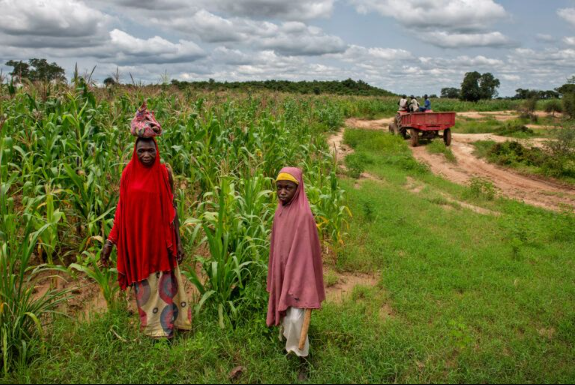A crisis despite abundant land and potential
Nigeria, despite possessing over 40% of Africa’s arable land, is facing an escalating food crisis, with more than 33 million people at risk of hunger in the second half of 2025, according to data from the World Food Programme (WFP) and the Cadre Harmonisé food security report. The alarming situation highlights the paradox of abundance—vast agricultural potential failing to translate into food sufficiency.
One of the primary drivers of this crisis is consistently low crop yields, which remain among the lowest on the African continent. Analysts warn that unless urgent steps are taken to modernize farming practices, improve input access, and address insecurity, Nigeria’s food insecurity could spiral into a full-blown humanitarian disaster.
Low Yields: The Core of the Crisis
Although Nigeria has fertile lands capable of supporting diverse crops across its six geopolitical zones, average crop yields per hectare remain dismally low. For example:
-
Maize yield in Nigeria averages about 1.5 tonnes per hectare, compared to over 5 tonnes in South Africa
-
Rice yield averages 2 tonnes per hectare, while Asian countries produce upwards of 6 tonnes
-
Cassava, despite Nigeria being the largest global producer, suffers from post-harvest losses and limited processing capacity
These figures reflect under-mechanization, poor irrigation infrastructure, low adoption of improved seeds, and minimal use of fertilizers and climate-smart techniques.
“We are farming like it’s the 1960s but expecting 21st-century results,” noted Prof. Adewale Ojo, an agricultural economist at the University of Ibadan.
Consequences: Rising Hunger, Falling Livelihoods
The immediate impact is visible in:
-
Soaring food prices, with staples like rice, maize, and tomatoes becoming unaffordable for low-income households
-
A decline in farmer income, further discouraging youth participation in agriculture
-
Increased dependency on food imports, which drains foreign reserves and undermines national food sovereignty
According to the National Bureau of Statistics, food inflation reached over 35% in early 2025, driven by poor harvests, insecurity in farming regions, and high transportation costs.
Insecurity: A Threat to Farm Access and Production
Insecurity remains a major impediment to farming, particularly in the Northwest and Northcentral regions, where banditry and farmer-herder clashes have displaced thousands of agricultural households.
States like Benue, Niger, Kaduna, and Zamfara, once major food baskets, have witnessed a sharp decline in cultivated land and yield output due to fear of attacks and abductions.
“We have abandoned our farms because it’s now a matter of life or death,” said Audu Ibrahim, a displaced farmer from Shiroro, Niger State.
A Call for Reform: Technology, Policy, and Investment
Experts and stakeholders argue that Nigeria must urgently invest in agricultural transformation by:
-
Scaling agricultural mechanization and access to improved inputs
-
Expanding irrigation networks, especially in dry belt regions
-
Promoting agritech solutions to provide real-time data and access to markets
-
Strengthening extension services and training for rural farmers
-
Increasing government investment in research, infrastructure, and storage
The Agricultural Transformation Agenda Support Program (ATASP-1) and recent government-backed agriculture intervention funds have shown promise, but experts insist they must be well-implemented, transparent, and inclusive.
Conclusion: Fixing the Root to Feed the Nation
Nigeria’s food insecurity is not due to a lack of land, but a lack of productivity, policy coherence, and protection for farmers. If the country is to feed its growing population and secure its economic future, it must close the gap between potential and production.
Boosting crop yields isn’t just a technical goal, it’s a national necessity that affects health, stability, and prosperity. With 33 million Nigerians at risk of hunger, time is of the essence.
Published on Xamblog.com – Insightful reporting on agriculture, national policy, and food security challenges in Nigeria.
Last Updated on July 10, 2025 by kingstar





